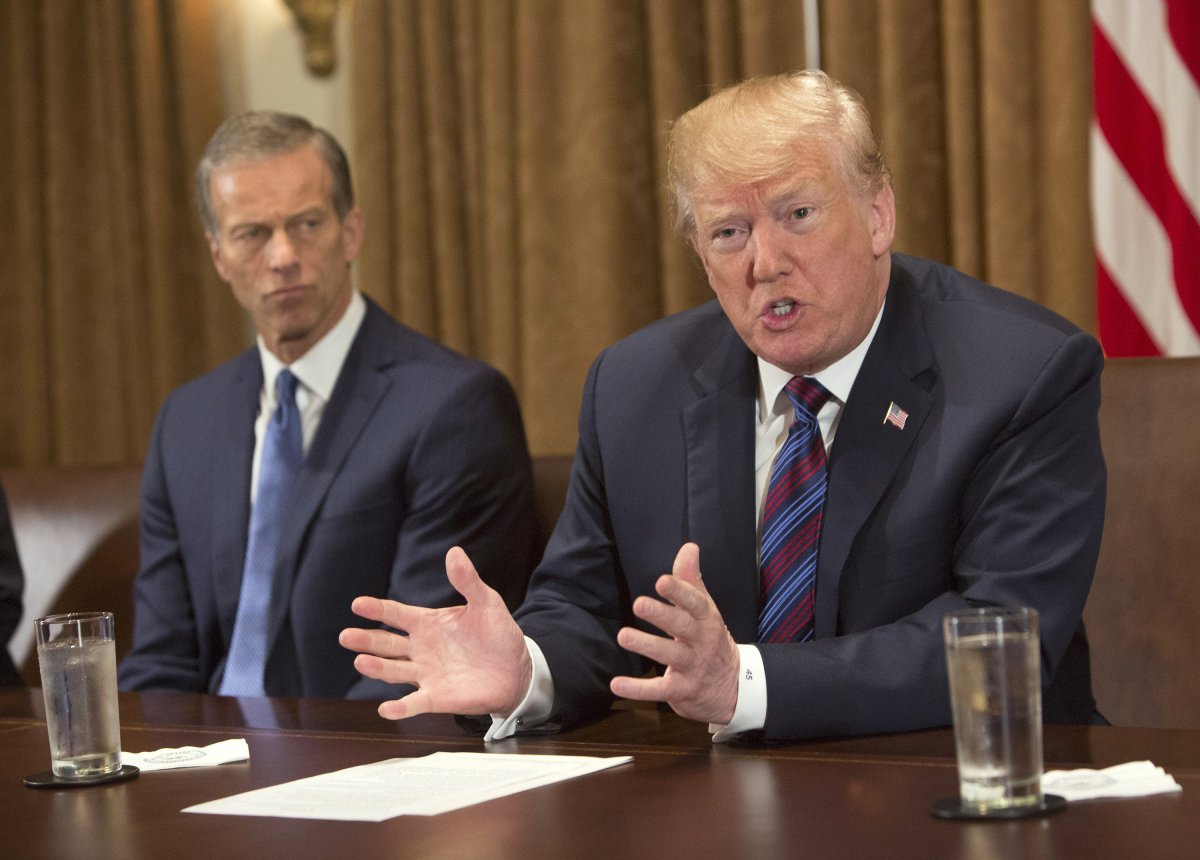Senate Majority Leader John Thune, a South Dakota Republican, has cast doubts on President-elect Donald Trump's mass deportation plans.
"Is it realistic to deport everybody? I mean, there are a lot of people in this country who are here illegally," Thune said on NBC's Meet the Press.
Why It Matters
Trump has repeatedly pledged to implement the "largest mass deportation program" in U.S. history, eliminate the CBP One app, end the catch-and-release policy, and reinstate the "Remain in Mexico" program as key components of his immigration agenda.

What To Know
Mass deportation was the centerpiece of his reelection campaign and a core component of the GOP's platform, with Trump promising that millions of migrants in the country illegally would be removed from the country starting on "Day One" of his presidency to tackle crime.
Thune, in his role as Senate majority leader, will be instrumental in getting the massive resources the Trump administration needs to enact the plan.
Thune stated that anyone who has committed a crime in the U.S. should be deported, along with the more than 1 million individuals already on the Biden administration's deportation list. The president-elect has also indicated that his administration will prioritize the removal of migrants with criminal backgrounds.
The policy could cost the U.S. a staggering $315 billion for a one-time effort, according to the American Immigration Council. Deporting 1 million people annually could cost up to $88 billion each year, according to the American Immigration Council. This would require a vast expansion of detention and court systems, as well as an unparalleled increase in law enforcement personnel, detention facilities, immigration courtrooms, and flight availability.
Pew Research estimates that there are approximately 11 million undocumented immigrants in the United States. The majority of these individuals have no criminal record, and their circumstances differ widely, ranging from asylum seekers who crossed the border to those who entered on a tourist visa and remained after it expired.
Among these individuals are approximately 1.3 million immigrants who have been issued removal orders but continue to reside in the country, either due to insufficient U.S. removal resources or because certain countries refuse to accept them back.
What People Are Saying
Senate GOP leader John Thune told NBC News: "I think this is going to be, obviously, a process, and it's going to take resources. Obviously, to get people to leave the country, we're going to have to make sure the administration has the resources they need to enable them to do that. Is it realistic to deport everybody? I mean, there's a lot of people in this country who are here illegally, but I think we have identified already, and I said anybody who has committed a crime in this country clearly ought to be on that list.
"There are a bunch of folks, over a million, million point four, I think, on the current administration's list of people that need to be deported.
"So start with that, and then we'll go from there and figure it out. But I think that the administration, when they take office, these are decisions, obviously, they're going to have to make, and we want to work with them to ensure that we have a safe and secure southern border where people don't have the incentive structure they have today, which is essentially come to this country, and we will waive you in.
"People have to understand that we are a nation of immigrants, but we are, first and foremost, a nation of laws, and you've got to follow the law."
Ernesto Castañeda, director at Immigration Lab and the Center for Latin American and Latino Studies, and professor at the College of Arts & Sciences and the School of International Service at American University, told Newsweek: "The U.S. economy would receive the largest negative impact if around 4 million undocumented Mexicans plus some of their U.S. citizen family members are deported to Mexico; it would decrease economic output by close to $2 trillion.
"Based on previous studies conducted at the Immigration Lab, I calculate that the US GDP would decrease by over 6.4 percent after the removals of Mexicans only have taken place. People from other parts of the world would also be caught in the dragnets and deported, causing further economic contraction in the United States."
What Happens Next
Trump is set to return to the White House in two weeks after running his successful presidential campaign with immigration at the forefront.
Customs and Border Protection sources have told Newsweek that they expect the president-elect to sign a raft of executive orders focusing on border security within 24 hours after he assumes office.




















 English (US) ·
English (US) ·